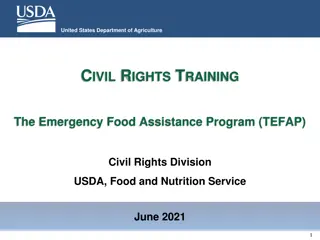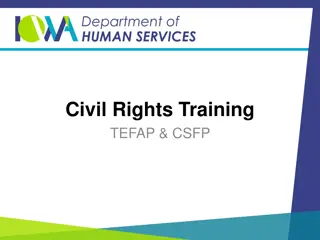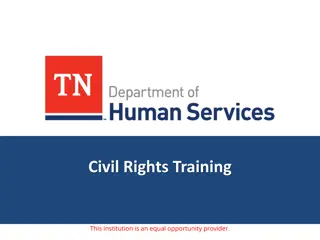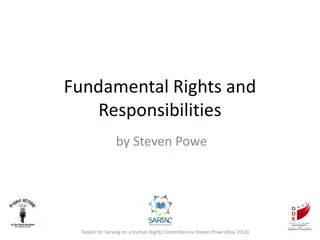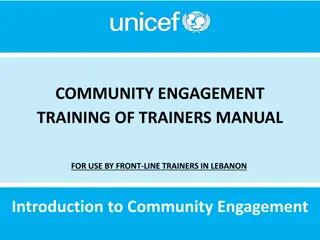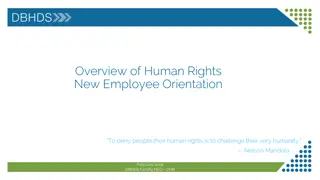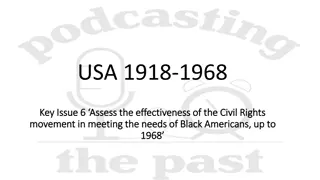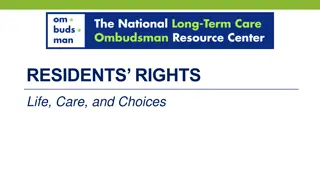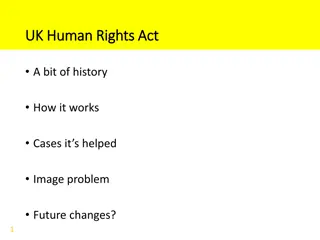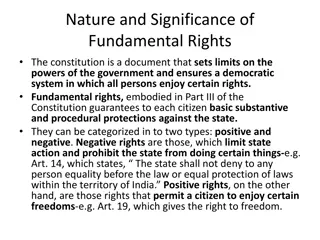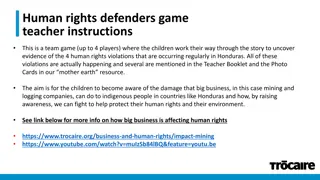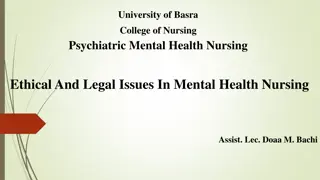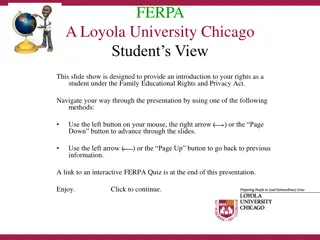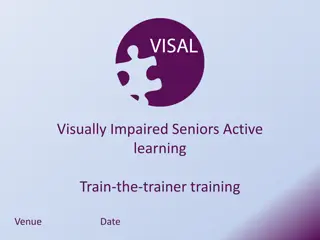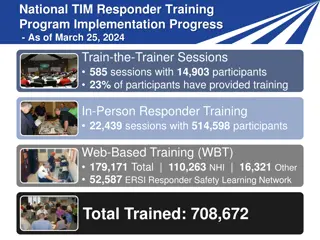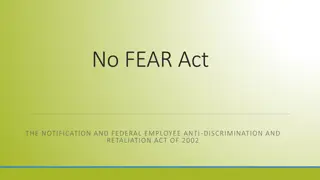Rights Training for Trainers: What You Need to Know
Dive into the essentials of "Know Your Rights" training for trainers, covering the source materials, presentation tips, breakout sessions, preparation, follow-up steps, and the significance of such training in empowering communities. Gain insights on why KYR matters, how to prepare effectively, and the importance of solidarity in navigating police interactions. Prepare to educate and support others with confidence and practical strategies.
Download Presentation

Please find below an Image/Link to download the presentation.
The content on the website is provided AS IS for your information and personal use only. It may not be sold, licensed, or shared on other websites without obtaining consent from the author. Download presentation by click this link. If you encounter any issues during the download, it is possible that the publisher has removed the file from their server.
E N D
Presentation Transcript
Know Your Rights Training for Trainers
What well cover today 1. What s the source material 2. How to give the presentation a. Introduction b. Why it s important c. How to prepare d. What to do during the police interaction e. What to do after the police interaction 3. Breakout practice session 4. How to prepare for the training 5. How to follow up 6. Who needs the training
The source material CCR zine Crimethinc poster NLG KYR Booklets ACLU KYR page JustUS NYC zine Tilted Scales Guide to Being a Defendant
The Introduction Be honest about who you are and why you re doing this Be honest about what you re not: Nothing that we say today constitutes legal advice. We are just presenting information that is publicly available Be clear about your limits Identify your weaknesses Confidentiality and consent for what we discuss in this space
Why KYR matters Solidarity Law enforcement agencies are still collecting evidence against people Abolition It s easy for people to understand that talking to cops about themselves is a bad idea, but that breaks down with just a little bit of alienation Creating neighborhood networks of care and organizing on a 1-on-1 level empowers your community and brings people together -- we take care of each other
Nuts and Bolts See training presentation Practice! ...Debrief
How to Prepare Read all the source material! Practice the presentation with people who don t know the material multiple times Time yourself Make sure your computer and network setup works Print things in advance if you want to give them out
How to Follow-Up Give a training for trainers! Make sure everyone has the resources Give people numbers to call Have attendees brainstorm who they can share this information with Consider checking in ever so often and updating people when there s news about an investigation
Who needs this training Everyone Your organizations Your friends Your family Your roommates Anyone who attended a protest after dark last summer















